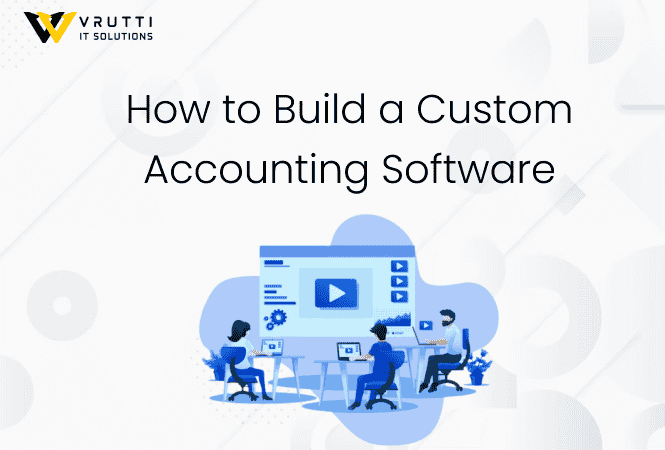How to Build a Custom Accounting Software

How to Build a Custom Accounting Software
In the digital era, managing finances efficiently is crucial for businesses of all sizes. Custom accounting software offers a tailored solution to meet unique financial management needs. This blog covers the key aspects of custom accounting software, its importance, development process, and costs, guiding you on building the perfect solution for your business.
What is Custom Accounting Software?
Custom accounting software is a financial management solution designed to address specific business needs. Unlike off-the-shelf software, custom solutions are tailored to meet an organization’s workflows, compliance requirements, and scalability goals.
Who Needs Custom Accounting Software?
- Small Businesses: To manage finances affordably and efficiently.
- Large Corporations: To handle complex financial processes and compliance at scale.
- Freelancers: To streamline invoicing, expense tracking, and tax calculations.
- Non-Profit Organizations: For budgeting, donation tracking, and regulatory compliance.
Importance of Custom Accounting Software Development
- Tailored Features: Ensures the software aligns with business-specific needs.
- Scalability: Adapts as your business grows and evolves.
- Integration: Seamlessly integrates with existing tools and platforms.
- Cost Efficiency: Reduces licensing and unnecessary feature costs associated with generic software.
- Regulatory Compliance: Custom-built to comply with industry-specific regulations.
Types of Custom Accounting Software
- Financial Reporting Software: Focuses on creating comprehensive reports.
- Invoicing and Billing Software: Automates invoice generation and tracking.
- Payroll Management Software: Streamlines salary and tax processes.
- Expense Management Software: Tracks, categorizes, and manages expenses.
- ERP Accounting Modules: Combines accounting with inventory and other business functions.
Five Steps of Accounting Software Development Process
1. Requirement Analysis
- Understand the target audience and their specific accounting needs.
- Identify must-have features like tax management, payroll, and reporting.
2. Design and Prototyping
- Develop user-friendly interfaces with intuitive navigation.
- Create wireframes or prototypes to visualize workflows.
3. Development
- Choose a technology stack suitable for scalability and security (e.g., React for frontend, Node.js for backend).
- Implement core functionalities like invoicing, reporting, and reconciliation.
4. Testing and Quality Assurance
- Perform rigorous testing for functionality, usability, and security.
- Address bugs and refine user experiences.
5. Deployment and Maintenance
- Deploy the software on cloud or on-premise servers.
- Offer continuous support and updates to improve features and security.
Accounting Software Development Cost
The cost of developing custom accounting software depends on:
- Features: Complex functionalities like multi-currency support or AI-driven analytics increase costs.
- Team Size: A larger team with specialized developers will cost more.
- Technology Stack: Advanced technologies may require higher investments.
- Development Time: Longer development cycles add to the cost.
Typical ranges:
- Basic Software: $10,000 to $20,000
- Advanced Software: $30,000 to $100,000
Choosing the Right Accounting Software Development Company
- Experience: Look for companies with expertise in accounting software.
- Portfolio: Check previous projects to assess quality and capabilities.
- Customizability: Ensure they can meet your unique requirements.
- Post-Development Support: Opt for firms offering ongoing maintenance and upgrades.
Role of Low-Code in Custom Accounting Software Development
Low-code platforms simplify and accelerate the development process.
Benefits of Low-Code Development:
- Faster Time-to-Market: Develop and deploy applications quickly.
- Cost-Effective: Reduces development costs with minimal coding.
- Ease of Customization: Allows rapid adjustments to features.
- Enhanced Collaboration: Non-technical users can contribute to development.
Popular low-code platforms include OutSystems, Mendix, and Zoho Creator, offering powerful tools to create efficient accounting solutions.
Conclusion
Building custom accounting software is a strategic investment for businesses aiming to streamline financial operations and stay competitive. By following a structured development process, partnering with the right development company, and leveraging technologies like low-code, businesses can create robust solutions that meet their unique needs.
Are you ready to develop your custom accounting software? To learn more about our custom software development services, feel free to contact us today.

